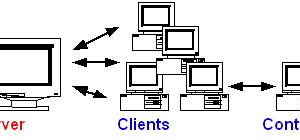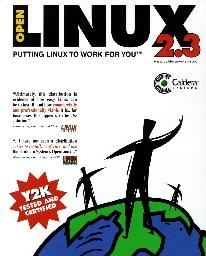What has surprised me somewhat more is something I’ve discovered since beginning to work for Linux Journal—the impact Linux has had in other corners of the globe, in fact in every corner of the globe.
Having recently returned from CeBIT in Hannover, Germany, where Jon “maddog” Hall of Linux International took excellent advantage of his precious opportunities to explain what Linux offers to key German cabinet members, I have a better understanding of the enthusiasm Western Europe reserves for Linux. Attendees who stopped by the Linux Journal booth to express their fervor included Dutch, German, English, French, Spanish, Portuguese and Belgian. But this is to be expected. What Linux enthusiast is unfamiliar with SuSE and Mandrake? Linux is, after all, the offspring of a European mind.
What has surprised me somewhat more is something I’ve discovered since beginning to work for Linux Journal–the impact Linux has had in other corners of the globe, in fact in every corner of the globe. For instance, what I found to be the most impressive Linux product displayed at CeBIT was neither European nor American, but the Mobile Multimedia Communicator offered by Galleo, an Israeli company. Of course I shouldn’t have been surprised as Linux started as an international endeavor, a child of the Internet with little regard for geographical boundaries, and cost (except as it relates to internet connectivity) doesn’t really constitute a barrier. As I’m sure our readers have noticed, our contributors reside in diverse parts of the world and face diverse computing challenges. Their solutions demonstrate the scalability and flexibity Linux offers.
In these pages Michael Stafford reviews The Hacker Ethic in which Linus Torvalds explains the entertainment value of hacking, the pleasure derived from computer creation. Perhaps this pleasure that so easily transcends national boundaries has something to do with the worldwide success of Linux. Linux, by nature of its flexibility and learning curve, encourages enthusiasm for hacking—something those who employ the more “user-friendly” OSes miss out on.
However, it’s not all peace, love and Linux warm fuzzies as Wayne Marshall, in his article “Algorithms in Africa” on page 72 points out. Linux is perhaps best known for powering the Internet, and internet connectivity is behind the hopes to bridge the Digital Divide said to exist between developed nations and those termed Third World. Wayne, a favorite regular contributor who has been living in Guinea for some time, highlights the fact that the divide is less than digital, though still informational—and the Western world may be on the ignorant side.
John Biggs recently spent two years in Poland and in his article “Linux in Poland”, on page 80, discusses to what point Linux has been embraced there and what obstacles remain.
Finally, Jorge Eduardo Nieto Lema reminds us of the potential advantages open-source software presents to nations having more important things to worry about than licensing fees. On page 82 he explains the Linux Terminal Server Project that allows setting up diskless workstations that boot from a Linux network server, a real boon to companies on a tight budget. Jorge tells of his experiences setting up the LTSP for a Colombian company and explains the installation.
—Richard Vernon, Editor in Chief
 Linux, Linux OS, Free Linux Operating System, Linux India Linux, Linux OS,Free Linux Operating System,Linux India supports Linux users in India, Free Software on Linux OS, Linux India helps to growth Linux OS in India
Linux, Linux OS, Free Linux Operating System, Linux India Linux, Linux OS,Free Linux Operating System,Linux India supports Linux users in India, Free Software on Linux OS, Linux India helps to growth Linux OS in India





